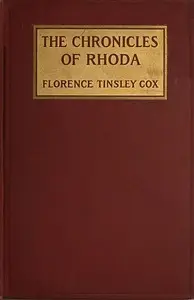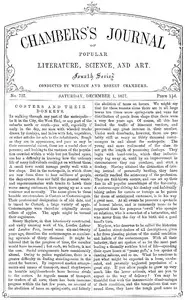"Rhoda Fleming — Complete" by George Meredith is a story from the late 1800s that follows sisters Dahlia and Rhoda as they deal with love, what society expects of them, and what they want for themselves, all set in the countryside. Their family and neighbors play a big part in what happens to them. The story begins with the Fleming family at Queen Anne's Farm. Mrs. Fleming, a strong woman, loves gardening, which helps her deal with being poor and having a hard marriage. We meet the two sisters: Dahlia, who is charming and wants to move up in the world, and Rhoda, who is more serious and thoughtful. They both dream of getting away from their small town, but their family problems and the pressures of society make things complicated. Mrs. Fleming's health and the arrival of Robert Armstrong, a young man who is connected to the family's future also add drama to their lives.

Rhoda Fleming — Complete
By George Meredith
In a tale of rural dreams and societal binds, two sisters face heartbreak and hope as a family's secrets threaten to unravel their entwined destinies.
Summary
About the AuthorGeorge Meredith was an English novelist and poet of the Victorian era. At first, his focus was poetry, influenced by John Keats among others, but Meredith gradually established a reputation as a novelist. The Ordeal of Richard Feverel (1859) briefly scandalised Victorian literary circles. Of his later novels, the most enduring is The Egoist (1879), though in his lifetime his greatest success was Diana of the Crossways (1885). His novels were innovative in their attention to characters' psychology, and also portrayed social change. His style, in both poetry and prose, was noted for its syntactic complexity; Oscar Wilde likened it to "chaos illumined by brilliant flashes of lightning". Meredith was an encourager of other novelists, as well as an influence on them; among those to benefit were Robert Louis Stevenson and George Gissing. Meredith was nominated for the Nobel Prize in Literature seven times.
George Meredith was an English novelist and poet of the Victorian era. At first, his focus was poetry, influenced by John Keats among others, but Meredith gradually established a reputation as a novelist. The Ordeal of Richard Feverel (1859) briefly scandalised Victorian literary circles. Of his later novels, the most enduring is The Egoist (1879), though in his lifetime his greatest success was Diana of the Crossways (1885). His novels were innovative in their attention to characters' psychology, and also portrayed social change. His style, in both poetry and prose, was noted for its syntactic complexity; Oscar Wilde likened it to "chaos illumined by brilliant flashes of lightning". Meredith was an encourager of other novelists, as well as an influence on them; among those to benefit were Robert Louis Stevenson and George Gissing. Meredith was nominated for the Nobel Prize in Literature seven times.



















